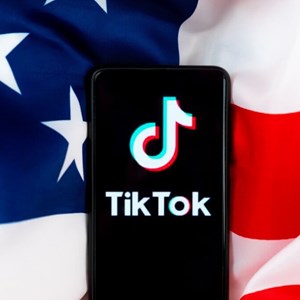- You can get an iPhone 16 for free with this Boost Mobile deal - no trade-in required
- Tata Communications recognised as a Leader in the 2025 Gartner® Magic Quadrant™ for Global WAN Services for 12 consecutive years
- Conducting Background Checks in the Corporate Security Environment
- Cisco U. Theater: Where Innovation Meets Learning - Cisco Live
- Your Guide to Cisco APIs at Cisco Live 2025: Empowering IT Teams in the DevNet Zone
TikTok Faces US Ban as House Votes to Compel ByteDance to Sell

The US House of Representatives has approved a bill on Wednesday, compelling ByteDance, the parent company of TikTok, to divest the social media platform or face a complete ban in the United States.
The vote witnessed a landslide victory, with 352 members of Congress supporting the bill while only 65 opposed it.
The bill, expedited for a vote after unanimous approval by a committee, grants China-based ByteDance 165 days to disassociate from TikTok. Failure to comply would result in legal prohibitions on app stores, including on the Apple App Store and Google Play, from hosting TikTok or providing web hosting services to ByteDance-controlled applications.
“There are two sides to the TikTok platform, content generation and content consumption,” commented Narayana Pappu, CEO at Zendata.
“A significant portion of TikTok content generation comes from outside the US, which in turn drives consumption/engagement in the US and brings in the audience for businesses to target. This is where the biggest impact will be, even if ByteDance divests the business to a US buyer and transfers the algorithms and existing user data.”
TikTok CEO, Shou Zi Chew, expressed disappointment at the news and pledged to protect the platform through legal means. Chew emphasized TikTok’s efforts in safeguarding user data and maintaining independence from external influences.
However, critics argue the bill consolidates power among existing social media giants and jeopardizes American jobs. Despite TikTok’s data security assurances, concerns persist over potential influence from the Chinese government.
Read more on TikTok privacy concerns: TikTok Fined $368m For Child Data Privacy Offenses
While the bill faces uncertainty in the Senate, with some Democrats expressing reservations, the White House has endorsed it, citing national security imperatives. Proponents clarify that the legislation does not signify a ban but aims to prompt ByteDance to sell TikTok, ensuring its continued operation in the US.
“The passing of the bill by the House comes hot on the heels of the Executive Order to protect sensitive data from countries of concern. However, this ban takes it a step further,” explained Claude Mandy, chief evangelist of data security at Symmetry Systems.
“The narrative that this will help address the influence of hostile foreign actors in social media doesn’t acknowledge that this is happening across all social media platforms regardless of the control of the app. The focus on the control of the app in its entirety also ignores the harsh truth that application code developed by ByteDance (as an example) is widely used and adopted in other applications not controlled by ByteDance.”
As the legislative process unfolds, TikTok’s fate hangs in the balance, with implications for the broader landscape of social media governance.
Image credit: Luiza Kamalova / Shutterstock.com

